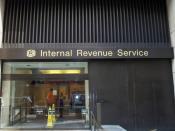Case Law Analysis I
Contract vs Permanent Employees
Vizcaino v. Microsoft Corp.
During 1987-1990, Microsoft hired contractors to perform work for them. Those contractors figured out, although, they performed the same tasks, had the same responsibilities, and worked the same amount of hours as regular employees, they were not eligible for ESPP program. They were differentiated from regular employees by wearing different color badges, having different e-mail addresses and attending a less formal orientation then regular employees. After that they sued Microsoft for misclassification. After years of litigation, the court concluded that the former contractors were common-law employees of Microsoft and entitled to the company's stock purchase benefits. Microsoft settled the case in 2000 for $97 million.
IRS audited Microsoft and challenged the independent contractor classification for these individuals. So, the IRS found out that the freelancers were employees because Microsoft exercised a considerable control over how these individuals performed they work. Microsoft fully integrated the freelancers into the workforce, having them to work shoulder to shoulder with regular employees and with the same supervisors. This situation continued for several years.
The plaintiff's arguments were: misclassification of their work relationship with Microsoft, no participation in ESPP plan.
Defendant arguments were: plaintiffs were independent contractors, and not employees;
were responsible for their own insurance, benefits and taxes; and were not eligible for any Microsoft employee benefits. And they had a work contract with plaintiffs mentioning no participation in the ESPP plan, and the plaintiffs were hired by third party(private agency).
After analyzing all of the facts and laws, the court's final decision was: that all common law employees of Microsoft are entitled to participate in Microsoft ESPP, subject to the exceptions specified in the plan. The court decision is based on IRS classification at common law employees, which means states that...


